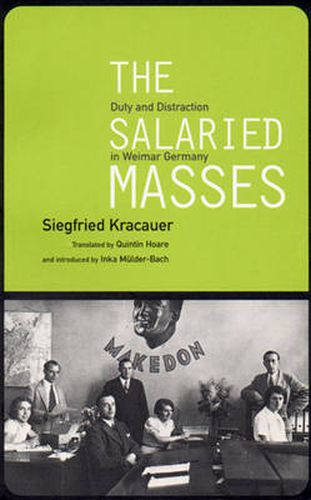Readings Newsletter
Become a Readings Member to make your shopping experience even easier.
Sign in or sign up for free!
You’re not far away from qualifying for FREE standard shipping within Australia
You’ve qualified for FREE standard shipping within Australia
The cart is loading…






First published in 1930, Siegfried Kracauer’s work was greeted with great acclaim and soon attained the status of a classic. The object of his inquiry was the new class of salaried employees who populated the cities of Weimar Germany. Spiritually homeless, divorced from all custom and tradition, these white-collar workers sought refuge in entertainment-or the distraction industries, as Kracauer put it-but, only three years later, were to flee into the arms of Adolf Hitler. Eschewing the instruments of traditional sociological scholarship, but without collapsing into mere journalistic reportage, Kracauer explores the contradictions of this caste. Drawing on conversations, newspapers, adverts and personal correspondence, he charts the bland horror of the everyday. In the process he succeeds in writing not just a prescient account of the declining days of the Weimar Republic, but also a path-breaking exercise in the sociology of culture which has sharp relevance for today.
$9.00 standard shipping within Australia
FREE standard shipping within Australia for orders over $100.00
Express & International shipping calculated at checkout
First published in 1930, Siegfried Kracauer’s work was greeted with great acclaim and soon attained the status of a classic. The object of his inquiry was the new class of salaried employees who populated the cities of Weimar Germany. Spiritually homeless, divorced from all custom and tradition, these white-collar workers sought refuge in entertainment-or the distraction industries, as Kracauer put it-but, only three years later, were to flee into the arms of Adolf Hitler. Eschewing the instruments of traditional sociological scholarship, but without collapsing into mere journalistic reportage, Kracauer explores the contradictions of this caste. Drawing on conversations, newspapers, adverts and personal correspondence, he charts the bland horror of the everyday. In the process he succeeds in writing not just a prescient account of the declining days of the Weimar Republic, but also a path-breaking exercise in the sociology of culture which has sharp relevance for today.